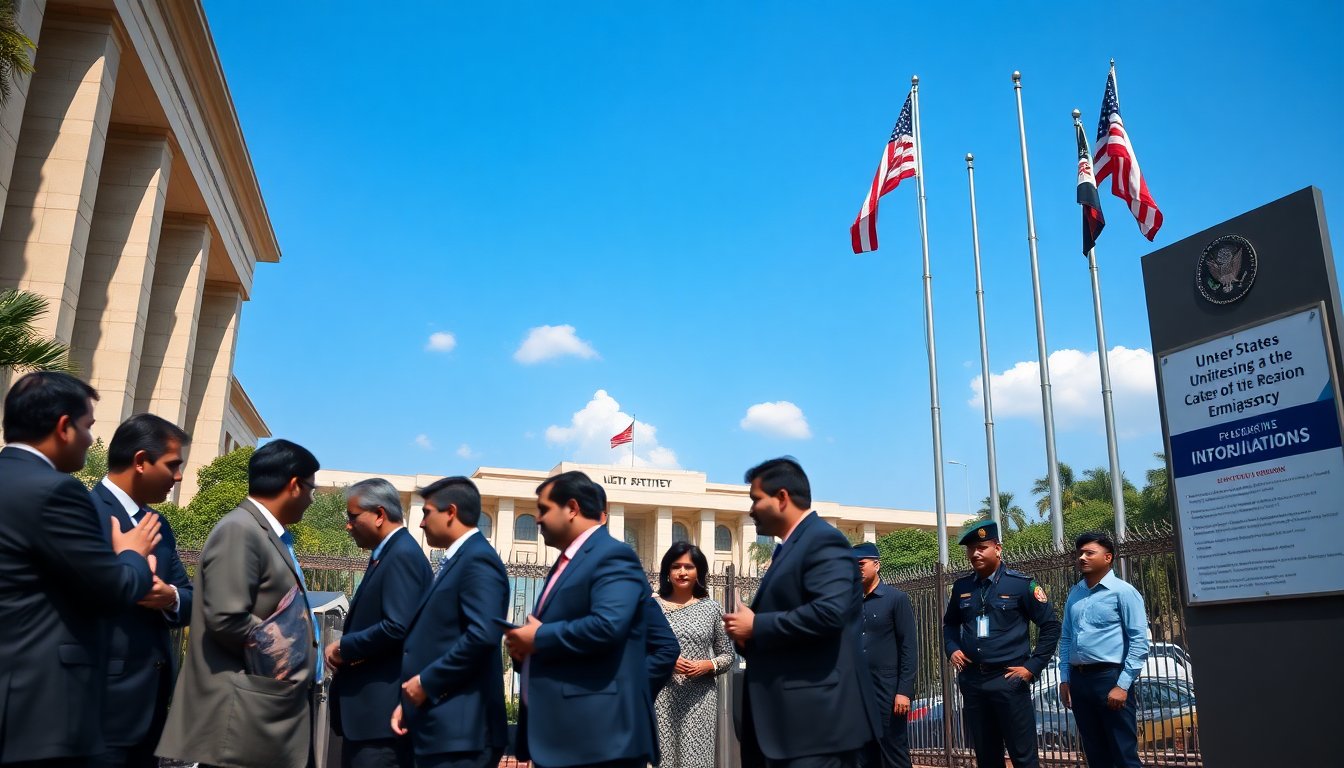Table of Contents
In a significant development, the United States government has initiated measures to revoke and deny visas to multiple Indian business leaders. This decision follows serious allegations regarding their involvement in trafficking fentanyl precursors. The US Embassy in India confirmed this action, which is part of the administration’s ongoing efforts to address the rising threat of synthetic drugs.
While the embassy did not reveal the names of those affected or the specifics of their business endeavors, it underscored the urgent need to tackle the fentanyl crisis that has recently beset the United States. Fentanyl and its precursors, which include various tranquilizers and chemicals, have been associated with a sharp increase in overdose fatalities across the country.
US-India Relations Strained by Trade and Drug Trafficking Allegations
The revocation of this visa occurs amid heightened tensions between Washington and New Delhi. These strains are particularly evident in trade disputes and India’s ongoing purchase of Russian oil. Previously, President Trump imposed significant tariffs, which exacerbated existing tensions due to India’s position on Russian energy imports. New Delhi has expressed criticism towards the United States for its inconsistent policies, especially as some European allies continue their energy transactions with Russia.
High-Level Communications Amidst Allegations
Despite ongoing tensions, diplomatic discussions between the United States and India persist. Recently, US trade officials visited India, and President Trump had a phone conversation with Prime Minister Narendra Modi. During the call, Trump expressed his admiration for Modi, stating, “Just had a wonderful phone call with my friend, Prime Minister Narendra Modi. I wished him a very Happy Birthday!” However, this friendly exchange was soon overshadowed by a declaration that identified India as one of 23 countries recognized as a significant drug transit or production area.
Collaborative Efforts to Combat Drug Trafficking
US and India Collaborate to Combat Drug Trade
The US Embassy has reaffirmed its commitment to working alongside the Indian government to address the transnational drug trade. “We are grateful to our counterparts in the Government of India for their close cooperation to combat this shared challenge,” the embassy stated. This collaboration aims to protect both nations’ populations from the threats posed by illicit substances.
In recent years, the opioid crisis has intensified in the United States, largely due to the widespread use of fentanyl. This synthetic opioid has been linked to a substantial number of overdose deaths. In 2023, fentanyl-related overdoses resulted in over 76,000 fatalities. These alarming statistics highlight the urgent need for a coordinated response from both governments.
Escalating Measures Against Drug Trafficking
In response to concerning statistics, the Trump administration has escalated its initiative against drug trafficking. Recently, military action was authorized targeting vessels suspected of transporting drugs from Venezuela to the United States. These measures reflect a comprehensive strategy aimed at dismantling drug trafficking networks that pose a threat to public safety.
As the United States adopts a stricter approach to drug-related issues, the impacts on international relations, particularly with India, are significant. Both nations have expressed a commitment to cooperation; however, the complexities of their trade relations and the urgent issue of fentanyl trafficking continue to pose challenges.
Conclusion: The Path Forward for US-India Cooperation
US and India Tackle Fentanyl Crisis Amidst Diplomatic Challenges
The situation surrounding the fentanyl crisis is evolving, with the possibility of both diplomatic solutions and increased tensions. The United States is actively addressing the severe impacts of fentanyl, and recent actions against Indian executives indicate a proactive stance on international drug trafficking.
Collaboration between the US and India is essential in addressing this urgent public health crisis. However, it will require ongoing commitment from both nations to effectively tackle the root causes of this issue.
Ultimately, the ability of both governments to navigate these challenges will hinge on balancing economic interests with the pressing need to combat the widespread threat posed by synthetic opioids.


